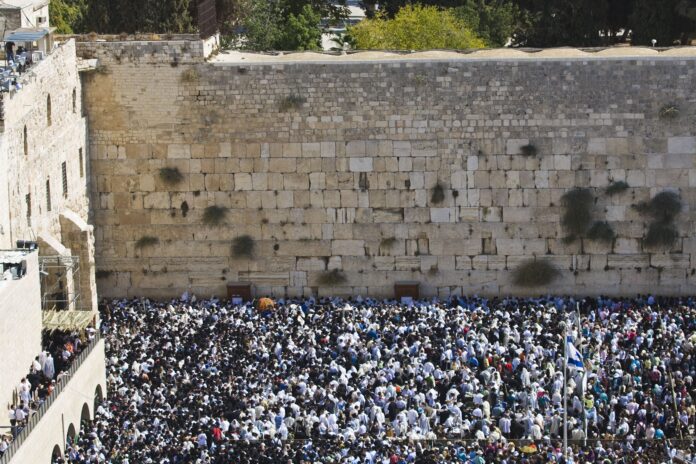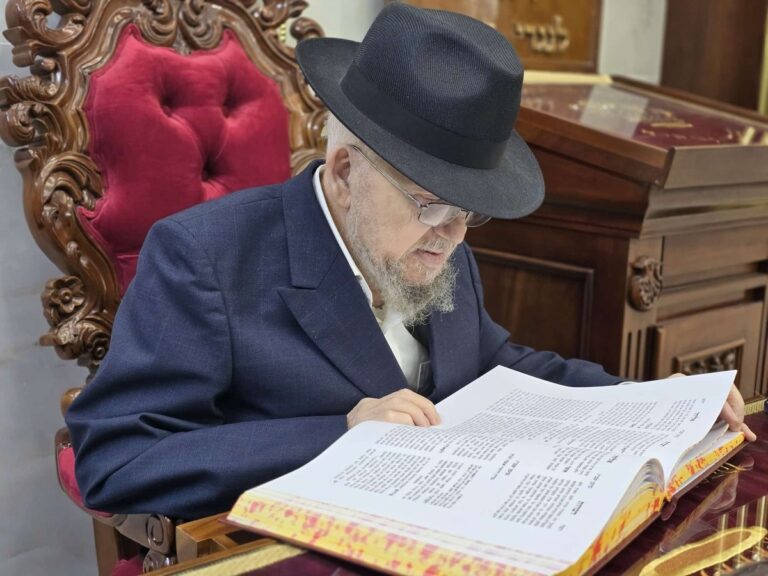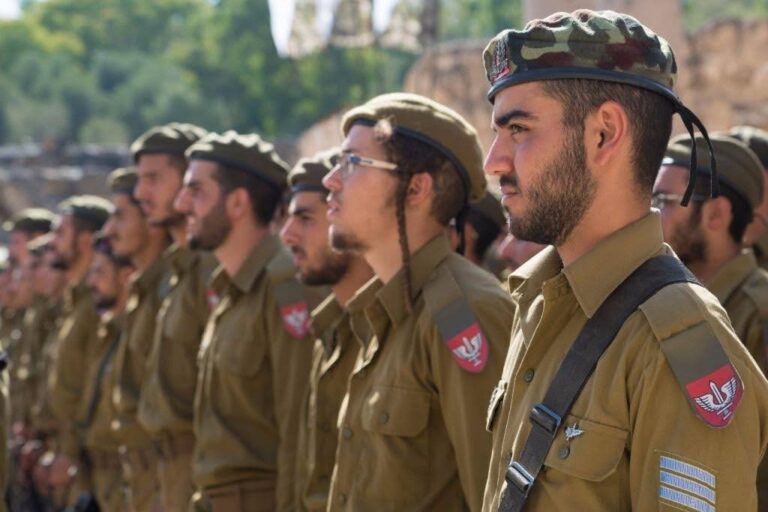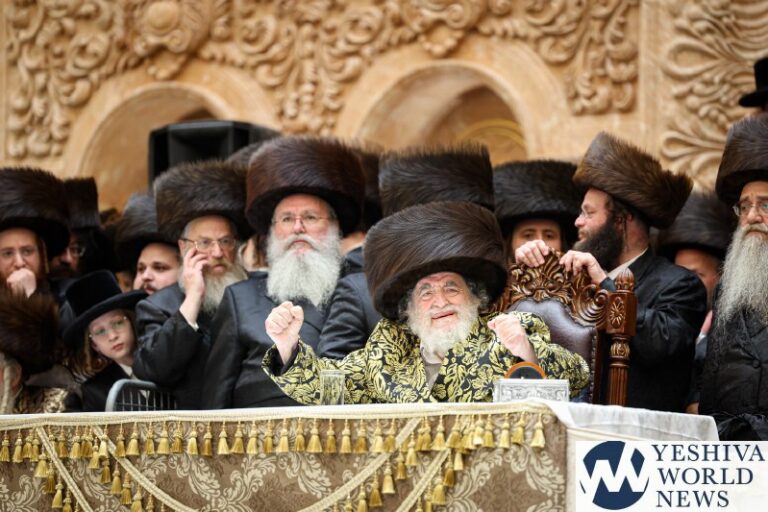(By Rabbi Yair Hoffman)
Centuries ago, Jews were often kidnapped and money had to be raised for their ransom. The halacha was that it was permitted even on Shabbos, as indicated in the Ramah (306:14). This is permitted even if there is no actual danger to life, but there is a spiritual danger in that the child will be raised in a non-Jewish religion where there will be constant violations.
There is a current situation that may be analogous to the case of the Ramah.
In order to understand that situation – some background is necessary.
The World Zionist Congress is a body of 500 people from Israel and from Jewish communities throughout the world. These 500 people are elected every five years. The elections decide the leadership of four main organizations that control the purse strings of much funding. Some say that it is to the tune of one billion dollars a year, but it is likely that this figure is inaccurate and that the participation in the election would only impact some 800 million per year. The organizations (and the leadership positions) that will be determined by the elections are:
- The World Zionist Organization
- The Jewish Agency for Israel
- The Jewish National Fund
- Keren Hayesod United Israel Appeal.
America has 152 delegate slots of the 500. Back in 2015, there were 57,000 votes. Arza (Reform Movement) got 22,800 votes – the most. The Conservative Movement slate called Merkas USA got approximately 10,175 votes. Mizrachi got about 9800 votes.
The largest slate of the delegates is a Reform Jewish organization that supports many projects that Orthodox Jews would deem antithetical to Torah Judaism. The new slate of leaders that are proposed by some factions include supporters of J-Street. Some are supportive of the movement to take away the Kotel from Orthodox Jewish administration.
It would be particularly sad if the great talmid chochom, Rav Shmuel Rabinovitch, the Rav of the Kosel and a mechaber sefer extraordinaire, were to be replaced with “Rabbi Jill.”
It would also be sad if Israel’s public school curriculum would continue to be written by proponents of Reform Judaism rather than those who have been trained in Kiruv Rechokim. Imagine what an infusion of some four billion dollars over the next five years would do to Kiruv.
This author believes that the two cases, that which is discussed in the Ramah and the current WZO election are analogous. There are also some five different factors at play here.
- First and foremost, there is the issue of Pikuach Nefesh – which also applies to people in spiritual danger. The Torah tells us v’chai bahem – and we shall live by the Torah – not die by them. Saving life is a fundamental Mitzvah. What is the source of this Mitzvah? The verse in Parshas Ki Taytzai (Dvarim 22:2) discusses the Mitzvah of Hashavas Aveida, returning an object, with the words “vahashaivoso lo – and you shall return it to him.” The Gemorah in Sanhedrin (73a), however, includes within its understanding of these words the obligation of returning “his own life to him as well.” For example, if thieves are threatening to pounce upon him, there is an obligation of “vahashaivoso lo.” In other words, this verse is the source for the Mitzvah of saving someone’s life. This would include saving someone spiritually. This is probably the general mitzvah that the Shulchan Aruch refers to in Shulchan Aruch Orech Chaim 325.
- Lo Saamod Al Dam Rayacha – There is a negative Mitzvah of not standing idly by your brother’s blood as well. This is mentioned in Shulchan Aruch (CM 426:1) and in the Rambam. Collectively, if we can stop the funding of the promotion of an anti-Torah agenda and replace it with a Torah-true one, we can ensure that we do not stand idly by our brother’s blood.
- Lo Suchal l’hisalaym – There is yet another negative commandment associated with the positive commandment of Hashavas Aveida, and that is the verse in Dvarim (22:3), “You cannot shut your eyes to it.” This verse comes directly after the Mitzvah of Hashavas Aveidah. The Netziv (HeEmek Sheailah) refers to this Mitzvah as well.
- V’Chai Achicha Imach- The Sheiltos (Sheilta #37), based upon the Gemorah in Bava Metziah 62a, understands these words to indicate an obligation to save others along with you. The Netziv in his He’Emek She’ailah understands it as a full-fledged obligation according to all opinions. He writes that he must exert every effort to save his friend’s life – until it becomes Pikuach Nefesh for himself.
- V’Ahavta l’Rayacha Kamocha – The Ramban, Toras haAdam Shaar HaSakana (p42-43) understands the verse of “and love thy neighbor as yourself” as a directive to save him from danger as well. Although he discusses the issue of medical danger, it is clear that this is an example, and it would apply to danger from spiritual enemies as well. Even without the Ramban, however, it is clear that defending and protecting someone from spiritual danger is a fulfillment of this Mitzvah.
TORAH WORLD HAS THE NUMBERS
And the Torah world has the numbers. Just as an aside, some two weeks ago, an article about a long lost Teshuvah from Rav Moshe Feinstein zt”l on cholov yisroel was published on this website. The amount of readers of that article exceeded the total number of votes in the entire election. That’s correct. More people read a cholov yisroel article than those who bothered to vote in the WZO election. And the WZO election deals out 4 billion dollars every five years.
Those that are urging frum Jews to vote in the election are Rav Chaim Kanievsky shlita – the Sar haTorah and Rav Shmuel Kamenetsky shlita. Numerous Poskim have said that there is no issue in voting.
There are other Rabbonim that feel that some of the declarations made in registering to vote run counter to a Torah perspective in that it does not identify Hashem as controlling events but rather attributes everything to man. With due respect, this author believes that a careful reading of the acceptance of the Jerusalem Program merely states that this is what some of the proponents of Zionism believe – which is, in fact, true. Thus, the animadversions of those that oppose signing on due to concerns of kefirah are not an issue – when one carefully analyzes the wording. [As an aside, although it was reported that Rav Aharon Feldman shlita had publicly rescinded his position against voting in the election, this is incorrect. Rather, Rav Feldman did not wish to publicly argue against the position of Rav Chaim Kanievsky.]
THE REFORM ARE RUNNING SCARED
The Reform movement are well aware that all that is necessary for their agenda to be replaced is if the Torah community would wake up and vote. It is for this reason that they filed a complaint against the Eretz Hakodesh Slate and Rabbi Pesach Lerner for allegedly violating the rules of the election.
They allege that the following sentences are demeaning: 1] “They set up alliances with left-wing parties in Israel and they often waged war against Torah and mitzvos.” 2] “They gave money to liberal anti-Torah projects and causes, in Israel and throughout the world.” 3] “If the American Torah community does not vote…the influences and decisions will be placed in the hands of those whose policies are most often anti-Torah.”
As a remedy, the Reform movement is demanding that the Eretz Hakodesh slate be subject to any and all appropriate penalties including but not limited to the reduction of mandates.
ORTHODOX ARE NON-ENTITIES
There is another issue as well. American Torah Jews are essentially non-entities when it comes to dealing with secular Israel. If Torah observant Jews voted on who would be the delegates the concerns of Torah Jewry would be taken into account more. Why should we not empower Asra Kadisha? Why should we allow for archaeological digs to trample upon Kvarim? Why can’t we allow for more kavod HaMais in contemporary funerals?
Obviously, when Rav Chaim Kanievsky issues a ruling, there is no need for a Yeshiva World article to back up his position. However, we do need encouragement to make it happen. The recommended slate is for Eretz HaKodesh and voting can take place here.
https://www.zionistelection.org/election/2a3b7a80-ba00-42ec-957e-c0375167a065
The author can be reached at [email protected]
NOTE: The views expressed here are those of the authors and do not necessarily represent or reflect the views of YWN.
DO YOU HAVE AN OPINION YOU WOULD LIKE TO SEE POSTED ON YWN? SEND IT TO US FOR REVIEW.
(YWN World Headquarters – NYC)












5 Responses
Factor 6. Sheker & Shmiras Hatorah. The WZN constitution [https://www.wzo.org.il/congress/files/articles/WZO_Constitution_march_2015.pdf] states: “In order to be a Member of the World Zionist Organization, a Zionist Federation shall comply with the following requirements … prevent the membership of bodies or individuals who adhere to or advocate discrimination based on origin, nationality, race, gender or [redacted] orientation”. As an Orthodox Jew, you are required to violate this, a Sheker, or agree to this, in which case you debase Torah requirements. As an Orthodox Jew, there are numerous instances in which you must adhere to policies discriminating by orientation and origin. There are numerous halachos regarding Mishkav Zachar, Kohanim, Levi’im, Mamzerim, to name a few. Not only halachos, but even perspectives (Mishkav Zachar, for example, which you must believe to be an act of ‘To’avas Hashem’, or reject Toras Moshe).
RABBI HOFFMAN RESPONDS: YOUR POINT IS TRUE BUT ONLY APPLIES TO FEDERATIONS AND NOT INDIVIDUALS. INDIVIDUALS ARE SPECIFICALLY EXCLUDED FROM THIS REQUIREMENT. THEY CAN HOLD WHATEVER THEY WISH.
This article crosses all all ligns. Although Rabbi Hoffman is a nice writer, he has no business stating publicly he is taking sides and believes one Gadol is more right than the other.
Why is he getting involved in a machlokes of the Gedolim? All of his arguements were true when Reb Elyashiv prohibited joining this election.
Rabbi Hoffman should stick to writing about things that are more in his league.
Have we heard from the Agudah on either a global (The Moetzes) or a more limited (Rabbi Lieff, Rabbi Heineman, Rabbi Greenblatt) level?
Have heard from Roshei Yeshiva (Mir, Rabbeinu Chaim Berlin, Torah Vodaas, Darkei Torah, etc.)?
What are the Admorim saying? The poskei ha’dor?
Question for R’ Hoffman: so does the ‘Eretz HaKodesh’ have to agree (as an organization/Federation or member of WZO)
to what dreambig quoted? Is that an issue?
Question for R’ Hoffman: so does the ‘Eretz HaKodesh’ have to agree (as an organization/Federation or member of WZO)
to what dreambig quoted? Is that an issue?